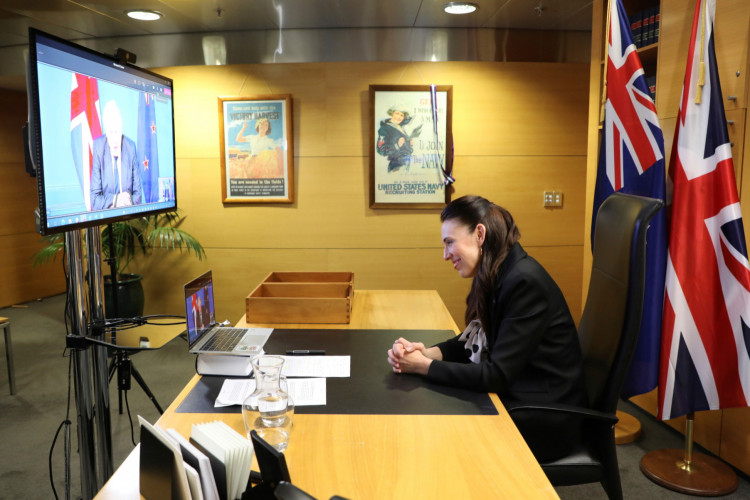The UK and New Zealand signed a free trade agreement Wednesday, which the governments say will boost consumer and business confidence for both sides.
The deal will remove most of the barriers to trade between the UK and New Zealand. It will also remove levies on some goods, such as clothes and farm equipment.
The deal was signed by Prime Minister Boris Johnson and Prime Minister Jacinda Ardern during a joint Zoom call. The agreement was the culmination of months of negotiations, which began last year.
"This deal serves New Zealand's economy and exporters well as we reconnect, rebuild and recover from Covid-19, and look forward into the future," Ardern said.
The UK already signed a similar deal with Australia, which is part of its efforts to strengthen its economic relationship following its departure from the European Union. As the UK's economy begins to recover from the pandemic, trade deals are vital to boosting growth and creating jobs.
With the deal, trade between New Zealand and the UK is expected to grow dramatically. Last year, trade between the two nations was estimated to be worth more than $3.2 billion. With the elimination of tariffs, consumers from both nations will be able to enjoy each other's products at much cheaper prices.
Analysts said the new deal is unlikely to contribute much to the UK's economic growth given that its trade with New Zealand only represents about 0.2% of its overall foreign trades. However, signing such a deal will bring it close to closing similar agreements with larger countries such as Canada and Japan.
The UK is reportedly aiming to eventually join the Comprehensive and Progressive Agreement for Trans-Pacific Partnership (CPTPP) - a bloc that includes large economies such as Canada, Mexico, and Japan. If the UK does manage to become a member, it will be able to gain more access in terms of opening free services and digital trade.
Critics of the agreement expressed concerns over how the trade deal could affect farmers in the UK and how it could potentially lower food standards. International Trade Secretary Anne-Marie Trevelyan argued that the deal will provide benefits in both directions and farmers should not be worried.






